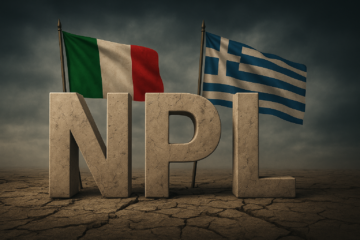BBVA; market cap (as of 21/11/2014): $60.99bn
Garanti Bakasi; market cap (as of 21/11/2014): $16.25bn
Introduction
On November 19, Banco Bilbao Vizcaya Argentaria (BBVA) announced the acquisition of a 14.89% stake of Turkiye Guaranti Bankasi’s from Dogus Group through a Turkish Lira (TL) 5.6bn (ca. €2bn) stock purchase. This operation follows the 2010 24.9% stake acquisition in the bank accomplished through a €4.2bn stock purchase, after BBVA increased its capital by €5bn. Those two purchases will allow BBVA to appoint seven out of ten directors of Garanti. Indeed, upon completion of the Acquisition, the shareholding structure of Garanti Bank (assuming no share capital increases) will be as follows: 39.9% owned by BBVA, 10.0% by Dogus Group and a free float of 50.1%.
Details of the deal
The referred consideration is divided into two parts: a price of TL8.8 per share which applies to all the shares amounts to approximately TL5.5bn (ca. €1.95bn) and a right granted to the Sellers to receive the dividend corresponding to the shares in relation to the financial year 2014 with a maximum limit of TL0.1 per share which amounts to approximately TL0.1bn (ca. €0.05bn). Therefore, if on the payment date of the dividend, the sellers are still the owners of the shares, the sellers will receive the amount of the dividend. The purchase price will be reduced, if applicable, in the amount of any excess over the abovementioned limit. On the contrary, if on the payment date of the dividend, the sellers are no longer the owners of the shares (due to their sale to BBVA), BBVA shall pay the sellers the amount it received (net of all taxes applicable to BBVA in Turkey) for the dividend corresponding to the shares. If the amount of the dividend exceeds the abovementioned limit, BBVA will only pay to the Sellers the net amount of the referred maximum limit.
The stock consideration will be paid via a €2.0bn capital increase. Indeed, BBVA will issue 242.2m shares (4.1% of pre-money capital and 3.9% after-money) at a price of 8.25€ in order to raise the €2.0bn necessary to pay a maximum of TL8.9 per share in the Turkish bank. The total par value of the 242.2m shares issuance is €118.8m (€0.49 per share), thus yielding a €1.9bn aggregate share premium (€7.76 per share). The bookbuilding process has been carried on by Bank of America Merrill Lynch and Morgan Stanley as Joint Global Coordinators and Joint Bookrunners, and by BBVA itself as Co-Bookrunner.
The banks involved
Formed from the 1999 merger between Banco Bilbao Vizcaya and Argentaria, BBVA is the second biggest Spanish bank in terms of total assets behind Banco Santander (€637.7bn versus €1,574.0bn in Q3 2014) and in terms of market value ($61.0bn vs. $107.0bn as of 21/11/2014). Additionally, it has a relevant banking presence in Turkey (through Garanti Bank), China (through CITIC) and operates an extensive branch network in 31 countries. The company employs roughly 110,000 people and serves around 51m customers worldwide.
Established in 1946, Garanti Bank is the second largest private bank in Turkey. The Garanti group has consolidated assets amounting to approximately €85bn Euros as of September 30, more than 22,000 employees and a commercial network with almost 1,000 branches and more than 4,000 cash dispensers. The Garanti group provides financial services to more than 13m clients in the retail, small and medium entities and large corporations’ market segments. By means of its subsidiaries, the Garanti group also carries out activities in the following business areas: credit cards and other payment systems, leasing, factoring, brokerage, asset management and pension funds. Garanti Bank is the largest financial entity in Turkey in terms of market share in the following sectors as of December 2013: consumer loans (13.6%), mortgages (13.5%), auto loans (18.6%) and credit cards (16.4%). Moreover, as shown below in Figure 1, Garanti is the second provider of loans in the Turkish market with a market share of (11.7%) as well as the third player in the market by total deposits and total assets with a market share of 11.3% and 12.0% respectively.
Source: Turkish Banking Association, BSIC
Rationale
The acquisition will provide BBVA with absolute control over the largest private bank in Turkey where BBVA has committed to strengthen its position. “Turkey is one of BBVA’s strategic markets. It has coped up well during the crisis and should continue to contribute to the BBVA Group’s growth over the long term.” said the BBVA Chairman and CEO Francisco González at the Spain-Turkey Investment and Cooperation Conference. Indeed, according to BBVA research team, the country will achieve a 4.6% average compounded annual growth between 2013 and 2023. Moreover, the country is the only European economy included in the so-called EAGLE countries (Emerging and Growth Leading), which are expected to lead the global economic growth in the next decade.
Moreover, BBVA expects the transaction to boost its 2016 profit by €250m thanks to Garanti’s strong market position as well as the low level of banking penetration in Turkey which provides huge potential for the company. Mr. González said – “Garanti operates in a market that has great growth potential and has a similar business model to that of BBVA, which is customer-centric and technology-based. BBVA and Garanti will continue to contribute to the growth of the economy and businesses in Turkey.”
Focus on the Turkish Banking Sector
The Turkish banking sector is the second largest CEE (Central Eastern Europe) banking system with an asset size of $788bn. As of 1H2014, in Turkey, there are 49 banks of which 32 are deposit taking (including 3 state-owned), 13 are investment and development banks and 4 are participation banks. The Turkish banking sector is well-regulated, monitored and governed by two primary regulatory authorities: the Banking Regulation and Supervision Agency (BRSA) and the Central Bank of Republic of Turkey (CBRT).
After the 2008 global economic meltdown and the financial risks that have emerged afterwards, the Basel II has started to be increasingly perceived as inadequate to deal with such situations of financial collapse and the Basel III regulation has come in to the force in order to overcome these weaknesses. The most critical addition that the Basel III regulation has introduced was the new capital adequacy framework aimed at increasing the required capital and at improving its quality. However, the Turkish banking sector seems to have anticipated such a regulation over the past decade. Indeed, after the 2001 Turkish economic crisis, a new regulation was adopted which reorganized the banking system along more stable lines. Reorganization has deeply disciplined the banking system to an extend that the Turkish banking industry has emerged as the sole banking industry among the OECD countries that did not require public financial support after the 2008 global economic crisis. Moreover, still as a consequence of the past regulation, the Turkish banking sector has managed to establish better internal auditing and controlling mechanisms and attained high levels of liquidity as well as low levels of leverage ratio accompanied by high levels of deposits. Indeed, given the transformation the Turkish banking industry has gone through, the compliance with Basel III regulation is expected to be rather smooth in this country.
Accordingly, we can state that the main strengths of the Turkish banking system are its strong-capitalization and low leverage, its growth potential highlighted by a low penetration ratio and its high liquidity and solid asset quality. Regarding the first aspect, we can notice that the Turkish sector has a sound solvency ratio with an aggregate Basel II capital at risk of 15.7%. Moreover, it is also a high quality capital since the Tier I capital constitutes more than 85% of total capital yielding an aggregate Tier I ratio of 13.3%. Finally, it is also characterized by a low leverage of “only” 8.0x if compared to the 8.4x in CEEMEA (CEE and Middle East and Africa) and the 11.6x in EU. As for the second aspect, we notice that, as of 1H2014, the penetration ratio of the banking sector, defined as the ratio of Total Assets to GDP, is a modest 101% if compared to 317% in EU. Moreover, if we consider the Total Loans to GDP ratio we have a similar result with a level of 60% compared to 110% in EU. Finally, also the Total Customer Deposits to GDP ratio is at only 56% if compared to 114% in EU. As for the third and final aspect, we notice that the market is highly liquid and strongly reliant on traditional commercial banking since, as of 3Q2014, deposits fund roughly 55% of assets and the Loans to Deposits ratio is ca.111%. The solidity of the Turkish economy and of its banking sector is also highlighted by its strong asset quality as proved by an NPL ratio of 2.7% compared to 10.1% in CEEMEA and 11.2% in EU.
[edmc id=2180]Download as PDF[/edmc]




0 Comments